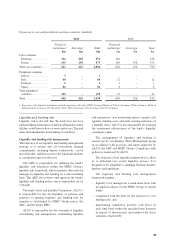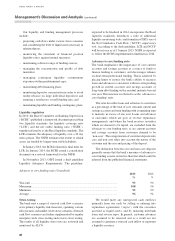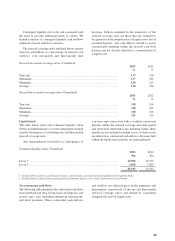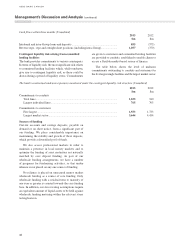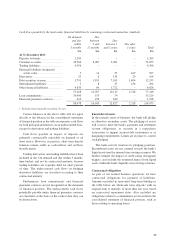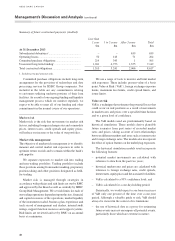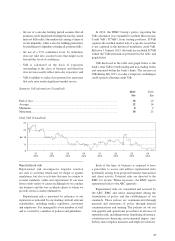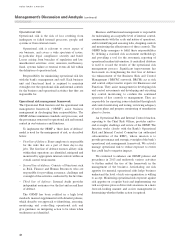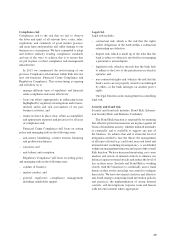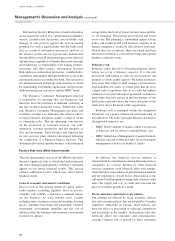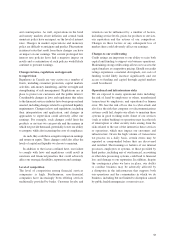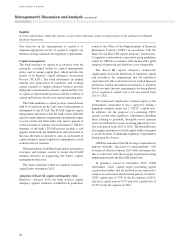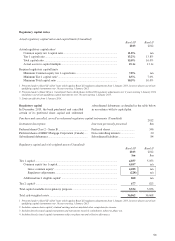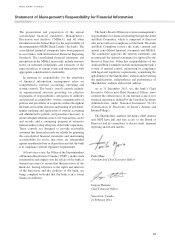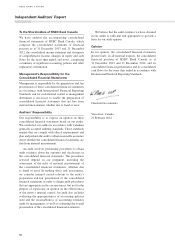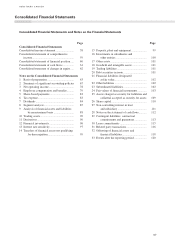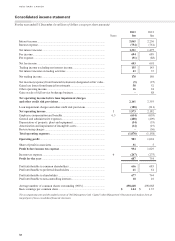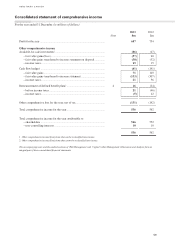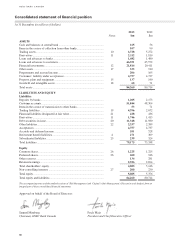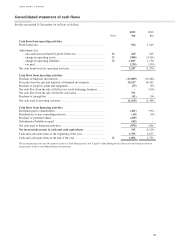HSBC 2013 Annual Report Download - page 53
Download and view the complete annual report
Please find page 53 of the 2013 HSBC annual report below. You can navigate through the pages in the report by either clicking on the pages listed below, or by using the keyword search tool below to find specific information within the annual report.51
and counterparties. As well, expectations in the bond
and money markets about inflation and central bank
monetary policy have an impact on the level of interest
rates. Changes in market expectations and monetary
policy are difficult to anticipate and predict. Fluctuations
in interest rates that result from these changes can have
an impact on our earnings. The current prolonged low
interest rate policies have had a negative impact on
results and a continuation of such policies would likely
continue to pressure earnings.
Changes in laws, regulations and approach
to supervision
Regulators in Canada are very active on a number of
fronts, including consumer protection, capital markets
activities, anti-money laundering, and the oversight and
strengthening of risk management. Regulations are in
place to protect our customers and the public interest.
Considerable changes in laws and regulations that relate
to the financial services industry have been proposed and
enacted, including changes related to capital and liquidity
requirements. Changes in laws and regulations, including
their interpretation and application, and changes in
approaches to supervision could adversely affect our
earnings. For example, such changes could limit the
products or services we can provide and the manner in
which we provide them and, potentially, lower our ability
to compete, while also increasing the costs of compliance.
As such, they could have a negative impact on earnings
and return on equity. These changes could also affect the
levels of capital and liquidity we choose to maintain.
In addition to the factors outlined here, our failure
to comply with laws and regulations could result in
sanctions and financial penalties that could adversely
affect our strategic flexibility, reputation and earnings.
Level of competition
The level of competition among financial services
companies is high. Furthermore, non-financial
companies have increasingly been offering services
traditionally provided by banks. Customer loyalty and
retention can be influenced by a number of factors,
including service levels, prices for products or services,
our reputation and the actions of our competitors.
Changes in these factors or any subsequent loss of
market share could adversely affect our earnings.
Changes to our credit rating
Credit ratings are important to our ability to raise both
capital and funding to support our business operations.
Maintaining strong credit ratings allows us to access the
capital markets at competitive pricing. Should our credit
ratings experience a material downgrade, our costs of
funding would likely increase significantly and our
access to funding and capital through capital markets
could be reduced.
Operational and infrastructure risks
We are exposed to many operational risks including:
the risk of fraud by employees or others, unauthorized
transactions by employees, and operational or human
error. We face the risk of loss due to cyber-attack and
also face the risk that computer or telecommunications
systems could fail, despite our efforts to maintain these
systems in good working order. Some of our services
(such as online banking) or operations may face the risk
of interruption or other security risks arising from the
risks related to the use of the internet in these services
or operations, which may impact our customers and
infrastructure. Given the high volume of transactions
we process on a daily basis, certain errors may be
repeated or compounded before they are discovered
and rectified. Shortcomings or failures of our internal
processes, employees or systems, or those provided by
third parties, including any of our financial, accounting
or other data processing systems, could lead to financial
loss and damage to our reputation. In addition, despite
the contingency plans we have in place, our ability
to conduct business may be adversely affected by
a disruption in the infrastructure that supports both
our operations and the communities in which we do
business, including but not limited to disruption caused
by public health emergencies or terrorist acts.


